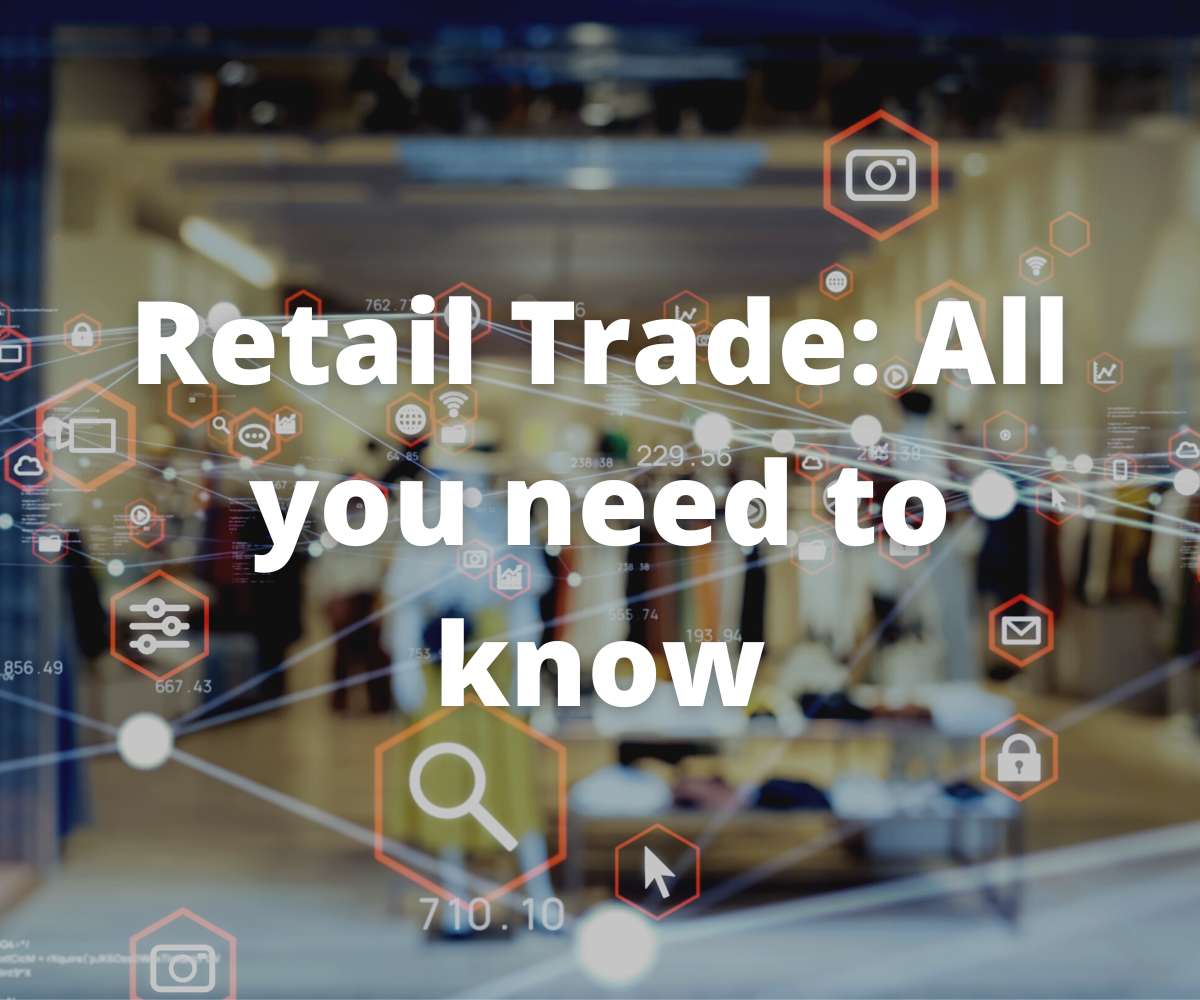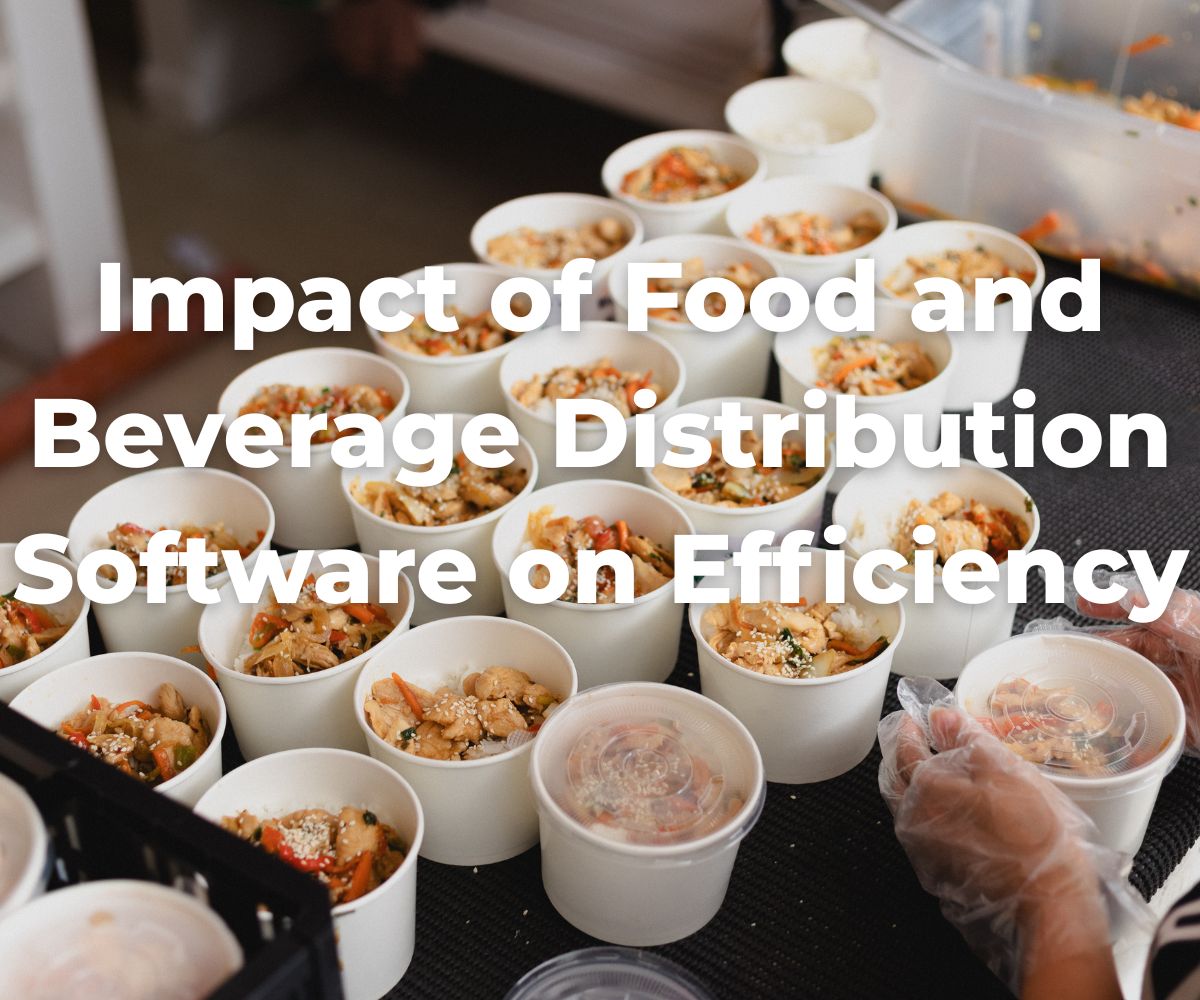all you need to know about retail trade
Description
Retail Trade: All you need to know
The goal of a retailer in the retail sector is to meet each customer's specific requirements.
In the retail industry, commonplace examples of the business model include supermarkets and department stores.
From factory to final buyer, everything must pass via a distribution system.
The retail point of sale (POS) system is a vital component of this setup because it is the last link in the distribution chain.
The retail POS system records transactions promptly and efficiently tracks customers' buying patterns while providing helpful information to the retailer, such as average sales per hour and best-selling items.
Understanding the Retail Trade
The sale of goods to the ultimate consumer, or retail client, is a core business function.
It connects manufacturers or distributors with final consumers. There are two types of retail businesses such as large-scale and small-scale.
The main distinction is that small retailers can only carry a limited selection of products. Contrarily, in large-scale retail establishments, customers can choose from various products.
The retail sector represents the final link in the supply chain. There is a wide variety of retail trades that might occur.
The retail exchange may take place over the phone, by door-to-door promotion, put-up, mail service, Etc.,
and is not limited to purchases made in a physical store. As a result, the point of sale might be anywhere from a store to a customer's home or even a vending machine.
It shows the versatility and prevalence of retail trade in today's market, providing consumers with more options for buying products than ever before.
While retail business has become more convenient and accessible to customers, there are also potential risks that consumers should be aware of when making a purchase.
The Idea Behind Retail Trade
Manufacturers can only reach their target market with the help of retailers. They are the last link in the distribution chain and are essential to the overall revenue picture.
They serve both wholesalers and end users with their offerings.
Retailers offer manufacturers an excellent opportunity to expand their market and increase their customer base by providing a platform to showcase their products.
Retailers offer a vital role to manufacturers, as they are the ones who communicate directly with the end customers
and are responsible for the ultimate satisfaction of their needs while also providing the manufacturers with valuable feedback on customer preferences, usage, and satisfaction.
Last Link in Getting Things to People
The usefulness of a location has this quality. Manufacturers and distributors can't advertise their wares to consumers worldwide.
The shop's responsibility also includes optimizing available space and ensuring that all potential customers can access the goods.
The distributors and the end consumers are connected through retailers.
Tailor-made Approaches to Retailing
Some products can only be sold face-to-face. These are not stock-standard products that can be chosen at random.
However, it is the responsibility of the retailers, not the manufacturer, to advertise the goods.
They close the deal through in-person promotion and networking. Consider the promotion of shoes, which frequently necessitates in-store one-on-one interaction.
Savings from increased production volume
Shops have the unique quality of breaking apart quantity, which allows manufacturers to produce in bulk and wholesalers to purchase in bulk.
They buy in large quantities but emphasize smaller (and sometimes even individual) sales. The result is that the producers or wholesalers can enjoy the benefits of economies of scale.
A Source of Market Knowledge
Every day, retailers interact directly with the final consumers. They are in a prime position to provide manufacturers with invaluable customer feedback.
A customer's first point of contact in the event of a problem with a purchase is the retailer itself. The information is helpful for manufacturers as they strive to improve their goods.
Advertising and marketing
Manufacturers and wholesalers can rely on retailers to assist them in promoting and advertising their products.
In-store advertisements, specials, discounts, and other forms of in-store participation are common types of retail promotion that retailers engage in routinely.
The Role of Retailers
The following things will shed light on why retail establishments are so crucial in everyone's direct proximity:
Convenience
Stocking a wide variety of products, local supermarkets and other retail establishments helps consumers bypass the inconvenience of traveling great distances to shop.
As a bonus, shoppers no longer need to stress over finding the products they need because stores provide that service.
In this way, a customer in Chennai can buy a product created in Mumbai by just visiting a nearby shop.
Availability Guaranteed
A buyer can easily stock up on these items without going to multiple stores.
They can buy them in small quantities when they're needed. The shop will stock enough of the item to meet demand whenever it occurs.
The client can handle their items being stored or warehoused.
Variety
Shops also provide an essential service by providing clients with many different options to choose from.
Customers can make an informed, first-class selection due to the possibilities presented.
For example, a customer may be able to purchase both higher and lower-quality items from the same store, allowing them to choose the item that best fits their needs and budget.
Support following a purchase
Sometimes, a product may need a quick installation, demonstration, or follow-up service after the sale.
Mostly, it's up to the stores to provide these kinds of extras for their customers.
Here, retail outlets are critical because if a customer buys a product from a store and discovers, after installation, that the product is defective,
the customer can return to the store and get a replacement immediately. Meanwhile, it can take online retailers up to two or three days to restock the item.
Provision for making credit available
It is common practice for retailers to provide customers with financing options or credit facilities that allow them to pay for their purchases over time,
typically in monthly installments or even at a later date.
Because of this, customers can go shopping for goods without worrying about coming up with the total cost right away.
This system has made shopping more accessible and convenient for many people, allowing them to make purchases they otherwise may not have been able to afford.
In addition to providing customers with flexibility and convenience, this credit system also makes it easier for businesses to expand their customer base by appealing to a broader range of shoppers.
Conclusion
One of the most sizable and rapidly expanding markets worldwide is retail trade. Many countries' economic growth is also tied to the success of their retail sector.
Many multinational corporations compete in retail to take advantage of shifting consumer preferences.
The retail sector is slowly but surely starting to spread toward evolving into the next boom industry with the help of reforms and government efforts.
Favorable government policies will take effect, making it easier for businesses to operate, which speaks well for the retail trade industry's future.
Obtaining an EPCG license requires the importer to contact the DGFT. The requisite paperwork for EPCG is submitted to DGFT.
Value addition is set, and export obligation is met according to the import tax exemption amount.






















